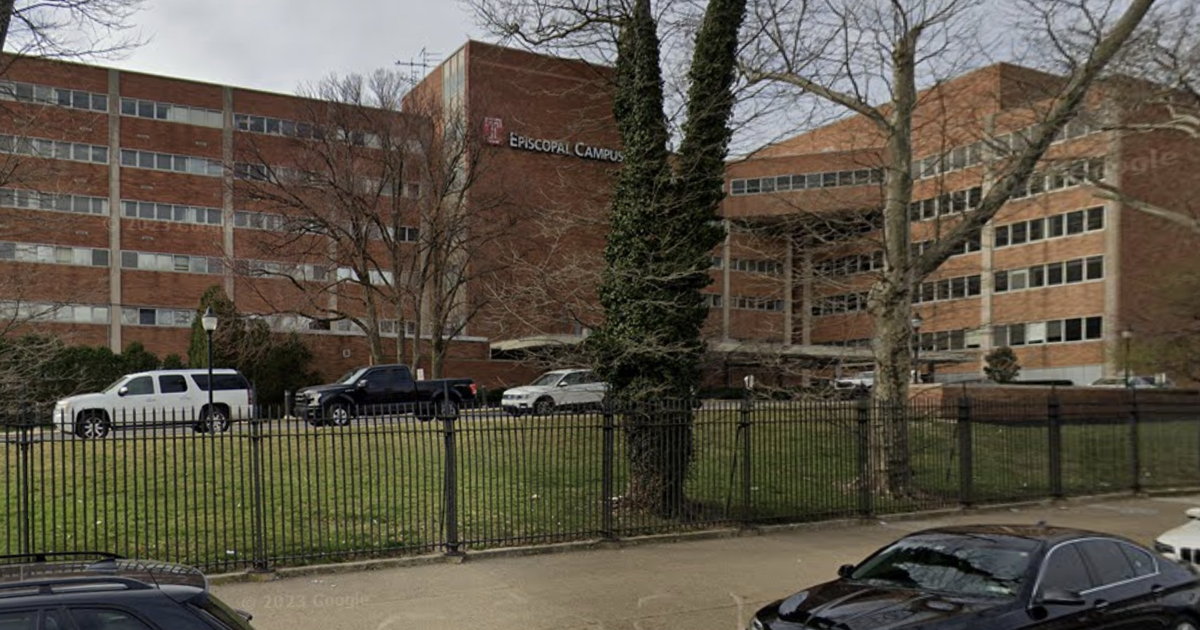Temple University Hospital’s Episcopal Campus in Kensington is undergoing a $12 million expansion that includes a new outpatient clinic for people with substance use disorders and improvements to its emergency department and crisis response center.
The hospital’s emergency department will add 10 treatment bays, bringing its total to 29, as part of a $5.6 million project. The crisis response center will triple its space with a $7 million redesign that will enable the facility to better respond to its 12,000-plus annual patient visits and increase the number of patients it can treat for behavioral health needs at any given time. The new outpatient clinic for people with substance use disorders opened recently.
MORE: Heart disease is the top cause of death in the U.S., and more than 60% of Americans will have it by 2050
As Philadelphia and the rest of the country continues to grapple with concurrent crises in addiction, mental health and homelessness, Temple’s growth at its Episcopal campus – in the heart of the city’s open-air drug market – will enable the health system to better meet the complex behavioral health and emergency medical needs of its community, directors at Temple Health said.
The Episcopal Campus emergency room draws patients mostly from the surrounding neighborhoods. It handles more than 40,000 annual visits for everything from chest pain to gunshot wounds to drug overdoses.
“It sounds counterintuitive, but the bigger space will actually improve the workflow, and it should result in decreased wait times and decreased duration of stay,” said L.J. Rasi, director of behavioral health at Temple University Hospital. “Right now, everyone’s on top of each other. We were way too busy for the size of our old emergency room. So, adding that space will allow for greater flexibility and will also allow for us to sort of make lanes for where the patient should go.”
The crisis response center offers 24-hour psychiatric emergency service where people with behavioral health crises can receive treatment to stabilize their conditions before moving to the next level of care. The $7 million expansion is being funded in part through a $3 million grant from Pennsylvania’s Redevelopment Assistance Capital Program. The redesigned center is expected to open in November on a new floor. In the meantime, it is operating uninterrupted on its existing floor.
The larger space will enable the crisis center to more effectively deal with the complex nature of its patients’ needs and an increased volume of those who need care, said Yvette Valiente, senior director of facility services at Temple’s Episcopal Campus.
People receive short-term inpatient psychiatric care and treatment for substance use disorders until they are referred to another one of Temple’s long-term facilities, an outside health care setting or to outpatient care. The new substance use disorder clinic is one of the places people may continue treatment after leaving the crisis response center.
The center currently serves about 30 patients, with a nearly 200% increase in the amount of people it’s treating from month to month, said Patrick Vulgamore, director of Temple Health’s Addiction Medicine Service Line.
“We’re lowering the no-show rate every single week, which I’m really proud and happy about,” Vulgamore said.
The substance use clinic’s medical director also staffs the crisis response center, so patients who move from there to the outpatient setting have a sense of consistency, Vulgamore said. The clinic also has two psychiatrists and 10 certified recovery specialists – people in recovery for substance use disorder who provide mentoring, advocacy and support services to patients. The clinic is in the process of hiring another four certified recovery specialists.
“The patient will say to the psychiatrist, ‘What do you know? You’ve never been addicted,'” Rasi said. “And these (recovery specialists) are able to cut right through that and really gain the rapport and trust of the patients.”
The clinic provides an immediate treatment option for patients in the emergency room or crisis response center who decide they want to enter or continue substance use disorder treatment, keeping them from falling away during sometimes otherwise long wait times for a bed. It also treats patients with co-occurring mental health issues and substance use disorder.
“There’s a huge gap in Philadelphia for the treatment of the co-occurring population,” Vulgamore said. “In the substance use disorder clinic, they’re able to help patients with medications for addiction as well as medications for psychiatric complications. That gap in Philadelphia is enormous.”
The expansion of Temple’s Episcopal Campus is funded in part by a Pennsylvania Department of Health Emergency Department Navigator grant and Community Project Funding from the U.S. Department of Housing and Urban Development and Congressionally Directed Spending.
link

